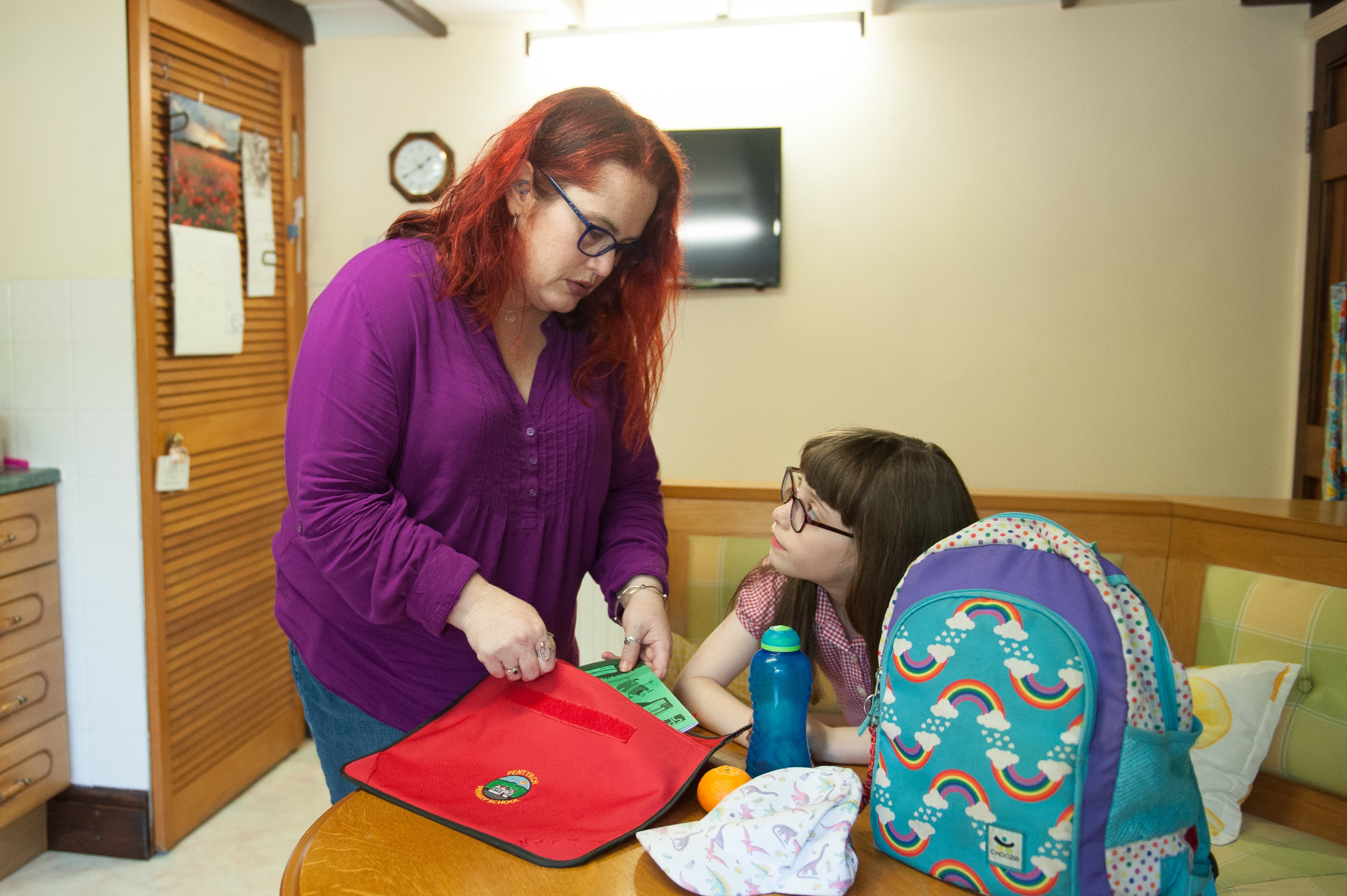- Home
- News and stories
- I felt powerless in the pandemic trying to get food and essentials while shielding
I felt powerless in the pandemic trying to get food and essentials while shielding
 15 November 2023
15 November 2023
I’m Melanie, and I’m 48. I'm from Florida originally, but I moved to Wales 11 years ago to join my husband.
I myself am disabled and I can't work. I have pretty severe Crohn's disease, an auto-immune disease throughout the entire digestive system. The main symptoms I get are severe pain and upset stomach, and I've had quite a few major bowel surgeries.
I also have fibromyalgia, which came along after I had cancer in 2014. Fibromyalgia causes me pain throughout my entire body and limits my mobility, and because it's chronic, it fluctuates. Some days, I can do more than others.
As a result of my Fibromyalgia and Crohn’s, I also have chronic fatigue.
It's a challenge to be a disabled mother. My daughter is under assessment for potential autism, but we're still waiting on a final assessment and it has been delayed by years because of coronavirus. All these factors mean I rely on my husband quite a bit, he’s basically my carer.
Before the pandemic
Before the pandemic, I’d shop at Tesco. I liked their rewards programme, their customer service is good, and we’d take advantage of their Click and Collect.
As a disabled person, I feel confident with the bigger stores - that there's going to be an obvious bathroom that’s clean, and there's going to be a wheelchair if I need it. The bathrooms are very well marked and easy to find, usually at the front of the store, and that can be enough just to get me in at times.
The fact Tesco have electric wheelchairs has helped me many times. For example, after surgery, or if I’m in too much pain but I need to go to the shops.
The start of the pandemic and accessibility barriers
At the start of the pandemic, I couldn’t get a delivery. Supermarkets weren't answering the phone, so I couldn’t get through to find out store layouts and accessibility information. For me, these aren't just preferences, they’re necessities.
As lockdowns continued, I started to hear how people with hidden disabilities were really struggling to be recognised in stores. Naturally, I had a lot of concerns about the one-way systems supermarkets had put into place. Looking at me, you wouldn't know I might need to jump the one-way system, or that I’d need to start at the toilets, not end at them.
How long would I have to be standing? Are there any tight areas where I'd get too close to people? If I needed the toilet, did I have to go around, up and down every aisle and around the store to get there?
Without knowing exactly where these things were positioned, it was anxiety-inducing. Because my husband is my carer, I don't really go anywhere without him. And because I wasn’t allowed into stores with him, it just wasn’t happening.
There was no way for me to shop, so initially, I was relying on a local volunteer network to support me with getting food.
Online accessibility during the pandemic
I was getting lots of emails with different information from Tesco, but I was having trouble getting delivery slots with them. They were just sold out of everything, So I registered with Morrisons, Asda, Waitrose, Sainsbury's, I was checking everywhere. There was a lot of anxiety and time put into finding those slots, to try to meet my family's needs.
There was the frustration of navigating different Supermarket websites and finding the products you needed in a different format. I just felt like sometimes like I didn't have the resources to do all that, to keep checking and learning the new website, and coming up empty.
If I had to go without food, I would. But the thought of not having food for my daughter was devastating. And there was nothing I could do but sit on my computer and sign up for all those supermarkets.
Everything felt completely out of my control. I had no power. No-one was meeting my needs. I couldn't go to the shops because they weren’t accessible for me, and because I was clinically extremely vulnerable and shielding.
There was a lot of desperation. It was like my purpose as a mother was under question. They were really dark times.
Supermarket which met my needs
After finally being put on the priority list, I found that a lot those priority slots were more expensive and there was an 8-hour delivery window, which wasn’t practical.
It took the pandemic to force me to look at other supermarkets. And one that stood out for me was Asda - they were actually there for me, to meet my needs.
I didn't have to notify them I was on the shielding list. All of a sudden, the priority slots just appeared, and there was hope. They had lots of slots late at night, and extra drivers with deliveries for £1, which made a real difference. Because of all these factors, I feel a connection with them. I feel like they've heard me, and they care.
I’m so thankful that we were eventually able to find a solution that worked for us. But it should never have been that difficult to be able to get food and essentials in the middle of a pandemic. We really did feel forgotten.
The in-store experience of disabled people needed to improve before the pandemic struck.
As well as considering keeping some coronavirus safety measures in place, Scope believes retailers need to provide disability awareness training for all in-store supermarket staff. They should also make a public commitment to their disabled customers, and have a clear public-facing strategy to detail how they will be more inclusive towards disabled customers.
 15 November 2023
15 November 2023







